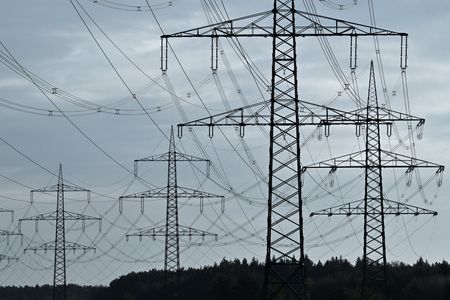BERLIN (Reuters) -Germany’s current energy transition strategy could cost as much as 5.4 trillion euros ($6.3 trillion) by 2049, heavily burdening businesses and households and weakening competitiveness, the German Chambers of Industry and Commerce (DIHK) said on Wednesday.
Berlin aims to cover 80% of its electricity needs with renewables by 2030, a step to becoming climate-neutral by 2045. But despite strong wind and solar energy growth in the past years, electricity prices remain among the highest in Europe, with projections showing grid investments to accommodate the growth to spike in the coming years.
“With the current policy, the energy transition cannot succeed. It risks driving energy-intensive industries abroad while weakening Germany’s economic base,” DIHK President Peter Adrian said in a statement.
Annual private investment in energy, industry, buildings and transport would need to climb to between 113 and 316 billion euros by 2035 from 82 billion euros on average in 2020–24, a study by Frontier Economics, commissioned by DIHK, showed.
Energy system costs between 2025 and 2049 are forecast at 4.8 to 5.5 trillion euros, including up to 2.3 trillion euros for imports and 1.2 trillion euros for grid costs.
Released ahead of a government review of energy demand and transition plans, the study urges a shift to cost-efficiency and international coordination through stronger carbon trading, lighter regulation and extended use of gas networks for hydrogen and decarbonised gas.
It estimates such measures could save up to 910 billion euros by 2050, with total savings topping 1 trillion euros if climate neutrality targets are eased. ($1 = 0.8542 euros)
(Reporting by Riham Alkousaa; Editing by Alex Richardson)










